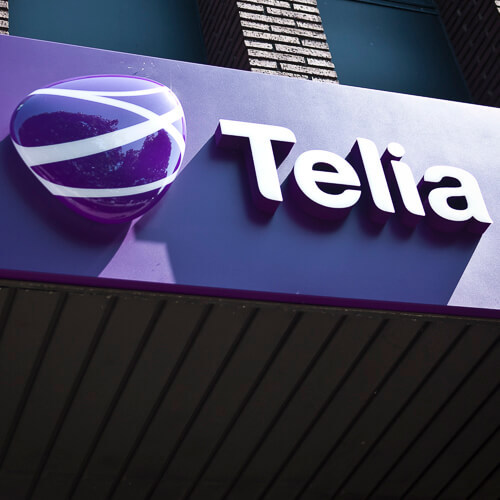After quitting Asia, Nordic debt junkie Telia is selling towers
Swedish operator will retain a majority stake in its Finnish and Norwegian towers after the latest infrastructure deal.

Away from the Bon Jovi concerts and public cloud takeover that have characterized this year's downsized Mobile World Congress, the telecom industry is going about its usual business of selling infrastructure to pay off debt.
The latest operator to find itself on skid row and selling the family estate is Telia, a Nordic debt junkie that remains moneyless despite having already sold most of its international operations.
Even after the sale of various business units in central Asia, Telia had about 77 billion Swedish kronor (US$9 billion) in net debt on its balance sheet at the end of March.
Not only have net debts soared about SEK21 billion ($2.5 billion) since 2015, but they are also now equal to roughly 2.5 times what Telia makes each year in basic earnings. In 2015, that ratio was just 1.5.
This all points to a couple of things. First, that in a region known for tyranny and corruption ever since the days of Genghis Khan, Telia's businesses were about as enticing as a Mongolian war cry.
It took Telia roughly five years to sell its "Eurasian" operations after Johann Dennelind, Telia's former CEO, noted that "it has been problematic in many ways to operate in the region."
In some markets, he said, "we have unknown co-owners, and it is difficult to repatriate cash." Telia probably wouldn't have been able to pay some legit investors to take these units off its hands.
Second, what remains of Telia is not exactly thriving. Its sales fell nearly 3% year-on-year in the recent first quarter, to about SEK21.8 billion ($2.6 billion), and its net profit dropped 15%, to SEK974 million ($115 million).
Allison Kirkby, who replaced Dennelind in May last year, reached for the familiar themes of "transformation" and "digital" in her round-up of results, as telco bosses generally do when bereft of other turnaround ideas.
Towermania
In the meantime, Telia is to raise €722 million ($858 million) in cash from the sale of a 49% stake in its Finnish and Norwegian towers. These towers, essentially, are the hat stands for mobile network equipment, and selling them in whole or part is the latest craze sweeping the telecom industry from the UK to Australia.
What Vodafone, Telefónica, Telecom Italia, CK Hutchison and others have already done, Telia is now copying. But no one ever accused an operator of originality.
Selling property you still need to use means becoming a tenant in future and paying rental fees, which does not necessarily sound like a pathway to juicier profits, especially if the landlords jack up the rates.
Telia, more sensibly, is retaining majority ownership in the 4,700 towers that form part of the deal, and these represent a relatively small fraction of the 25,000 it owns altogether.
The assets have fetched a good price, too, valuing them at about 27 times their earnings (before interest, tax, depreciation and amortization) last year. Other recent tower valuations have been at around this level and so Telia's shareholders do not have to worry about missing out.
After the deal, which is expected to close in the last quarter of this year, Telia's leverage ratio should drop to a more respectable 2.1.
Want to know more about 5G? Check out our dedicated 5G content channel here on Light Reading.
The new co-owners are Brookfield, an asset manager, and Alecta, a Swedish pension fund. Such investors in infrastructure are the new wheelers and dealers in telecom.
They have stormed into Europe's towers market since operators first began lowering their defenses, spotting an opportunity to earn decent long-term returns from infrastructure now deemed critical to the region's economies.
Just as private equity advances, so telecom is retreating from site ownership.
Spain's Telefónica has gone furthest in Europe, having sold its own controlling towers stake in several major markets at the start of the year to American Tower, a US specialist.
It pocketed €7.7 billion ($9.2 billion) but must now make regular rental payments in a rapidly consolidating market. Nor is it any longer in control of site development.
The full ramifications of that decision might not become apparent for several years. But Telia's shareholders – who had sent the company's share price up more than 2% in Stockholm at the time of publication – should be happy to see Kirkby exercising caution.
Related posts:
— Iain Morris, International Editor, Light Reading
About the Author(s)
You May Also Like












